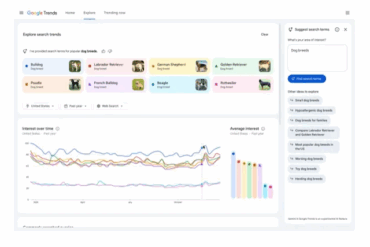The video-call provider has apologised for sending data to Facebook without users’ permission, showing that we must be vigilant about the tech we use.
A couple of months ago, Zoom was a dull, if successful, videoconferencing app that not many people knew about. Now, it is a household name and an integral part of many of our quarantined lives. We conduct business meetings on it; we chat to our mates on it; some people even have sex parties on it.
Yet there are growing concerns over what it does with users’ data. You may think you are working from the privacy of your own home, but the software is probably sharing a lot more information about you than you realise. Zoom has an attention-tracking feature, for example, which notifies the host of some video calls if participants click away to look at something else. The company has actively promoted this feature to educators, explaining it’s a good way to monitor which of your students is slacking off.
In any article about privacy violations, it is pretty much a given that Facebook will be mentioned. This is no exception. Recent analysis by Vice found that Zoom’s iOS app was sending analytics data to Facebook, even when the user did not have a Facebook account and even though this was not addressed in Zoom’s privacy policy. This data included things such as the user’s location and the device’s advertiser identifier information, a unique ID that lets companies send you targeted ads. On Friday, Zoom issued a statement saying “whoops!’” and announcing it had updated its software to stop sending iOS data to Facebook.
I am not saying that you should boycott Zoom and communicate via carrier pigeon. However, as we are forced to live even more of our lives online, let’s not stop holding tech companies to account. Let’s not stop trying to safeguard our right to privacy. Our civil liberties are most fragile during times of crisis. Governments around the world are already using this pandemic to bolster the surveillance state. If we don’t stay vigilant, our privacy will be lost before you can say “Zoom”.
Since you’re here…
… we’re asking readers like you to make a contribution in support of our open, independent journalism. In these frightening and uncertain times, the expertise, scientific knowledge and careful judgment in our reporting has never been so vital. No matter how unpredictable the future feels, we will remain with you, delivering high quality news so we can all make critical decisions about our lives, health and security. Together we can find a way through this.
We believe every one of us deserves equal access to accurate news and calm explanation. So, unlike many others, we made a different choice: to keep Guardian journalism open for all, regardless of where they live or what they can afford to pay. This would not be possible without the generosity of readers, who now support our work from 180 countries around the world.
We have upheld our editorial independence in the face of the disintegration of traditional media – with social platforms giving rise to misinformation, the seemingly unstoppable rise of big tech and independent voices being squashed by commercial ownership. The Guardian’s independence means we can set our own agenda and voice our own opinions. Our journalism is free from commercial and political bias – never influenced by billionaire owners or shareholders. This makes us different. It means we can challenge the powerful without fear and give a voice to those less heard.
Your financial support has meant we can keep investigating, disentangling and interrogating. It has protected our independence, which has never been so critical. We are so grateful.
We need your support so we can keep delivering quality journalism that’s open and independent. And that is here for the long term. Every reader contribution, however big or small, is so valuable. Support the Guardian from as little as €1 – and it only takes a minute. Thank you.





